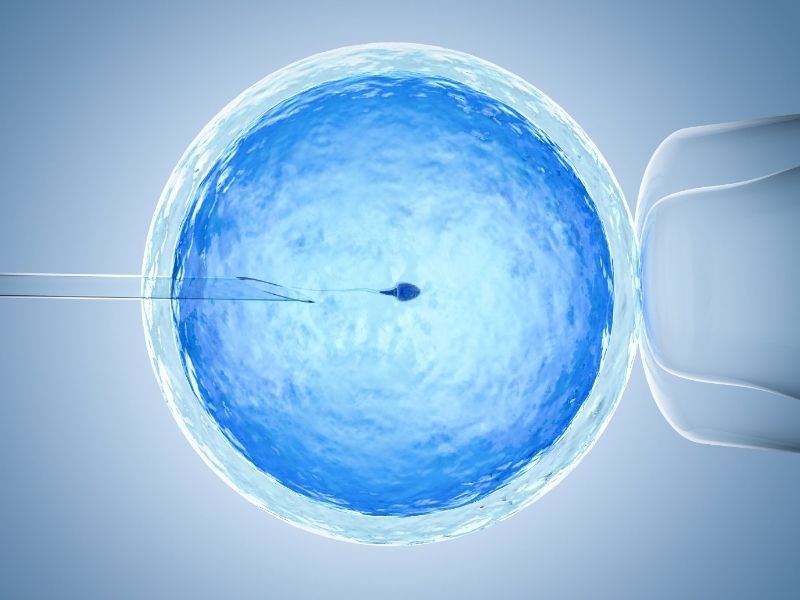In vitro fertilization (IVF) is a widely discussed and transformative approach to assisted reproductive technology, yet it remains shrouded in myths and misconceptions. Many people hold beliefs about IVF that can cause confusion or anxiety, from assumptions about its success rates to misunderstandings about the process itself. In this article, we’ll address some of the most common misconceptions about IVF, providing clarity and insight to help individuals make informed decisions about their reproductive health.
Is IVF Treatment Suitable for Everyone?
In vitro fertilization (IVF) is a remarkable medical advancement that offers hope to many individuals and couples struggling with infertility. However, it’s not a one-size-fits-all solution, and its suitability depends on various factors. IVF can be highly effective for those with certain conditions, such as blocked fallopian tubes, male infertility issues, or unexplained infertility. Yet, it’s essential to consider individual health conditions, age, and the underlying causes of infertility when evaluating whether IVF is the right choice. Additionally, the process involves a significant emotional and financial commitment, which must be weighed carefully. Consulting with a fertility specialist can provide personalized insights and help determine if IVF is the most appropriate treatment option based on individual circumstances and reproductive goals.
Misconceptions about the Success Rate of IVF Treatment
The success rate of in vitro fertilization (IVF) is a common topic of discussion, yet it is often surrounded by misconceptions that can lead to unrealistic expectations. One prevalent myth is that IVF guarantees pregnancy, but in reality, success rates can vary significantly based on several factors, including age, the underlying cause of infertility, and the quality of the embryos. Additionally, some people assume that the number of IVF cycles directly correlates with increased chances of success, not accounting for individual variations and the specific circumstances of each case.
Another misconception is that a high success rate at one clinic guarantees similar results elsewhere. However, success rates can differ between clinics due to variations in technology, expertise, and treatment protocols. It’s also important to understand that while IVF can significantly improve the chances of conception, it may not always result in a successful pregnancy on the first attempt. By addressing these misconceptions, individuals can approach IVF with a clearer understanding of its realistic outcomes and make informed decisions about their fertility treatment options.
The Misconception that IVF Treatment is Only for Women
A common misconception about in vitro fertilization (IVF) is that it solely pertains to women, overlooking the crucial role men play in the fertility process. While it’s true that IVF involves a woman’s eggs and the process of embryo implantation, the male partner’s sperm is equally important in many cases of infertility. IVF can be utilized to address male infertility issues such as low sperm count or poor sperm quality, which are common factors affecting fertility.
Moreover, IVF treatment is often a collaborative effort that involves both partners. For same-sex couples and single individuals, IVF offers a pathway to parenthood through sperm or egg donors. The misconception that IVF is only for women ignores these diverse scenarios and the integral role men play in the treatment process. Understanding that IVF addresses fertility issues for all partners involved helps dispel myths and encourages a more inclusive view of reproductive technology.
Side Effects of IVF Treatment: Facts and Myths
In vitro fertilization (IVF) is a transformative technology for many seeking to overcome infertility, but it is often accompanied by concerns about potential side effects. Understanding the real risks versus common myths is crucial for anyone considering IVF.
One prevalent myth is that IVF inevitably leads to severe complications or health issues. While it’s true that IVF can cause some side effects, such as ovarian hyperstimulation syndrome (OHSS) or mild discomfort from hormone injections, these are typically manageable and not as extreme as some might believe. Many individuals undergo IVF with minimal side effects and experience successful outcomes.
Another misconception is that IVF causes long-term health problems. Research indicates that the risks associated with IVF are generally low and that the procedure itself does not significantly impact long-term health. However, it’s important for patients to be informed about the potential risks and work closely with their healthcare provider to monitor and manage any side effects.
By separating fact from myth, prospective IVF patients can approach their treatment with a clearer understanding of what to expect and make well-informed decisions about their reproductive health.


